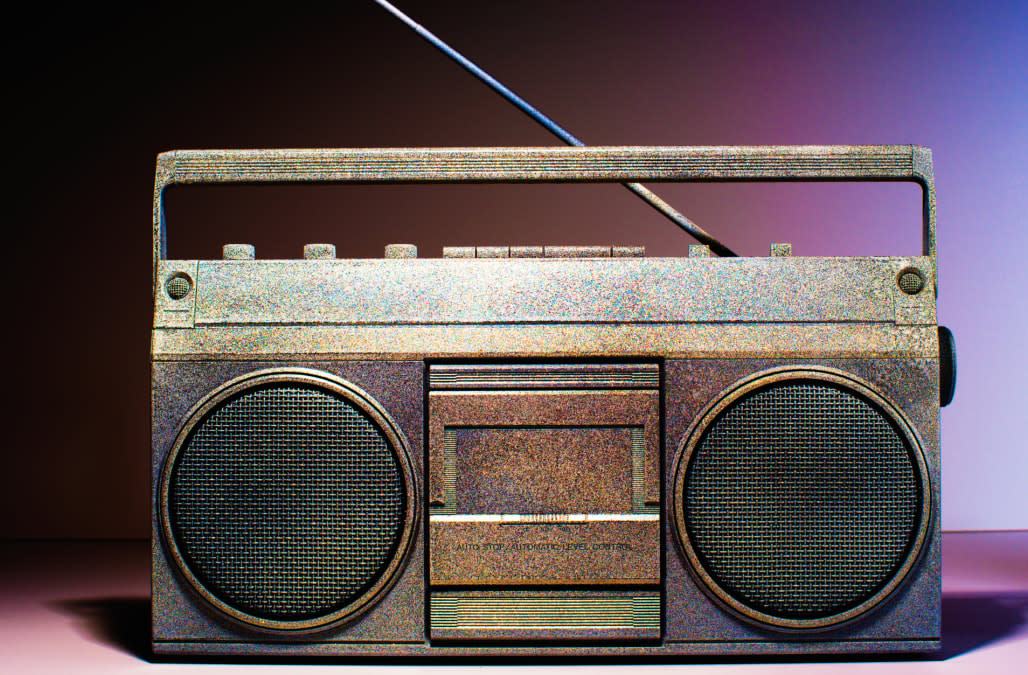Banned from the radio

By Dre Weston from DoYouRemember
On February 19th, 1972, the BBC officially banned former Beatle Paul McCartney's song "Give Ireland Back to the Irish" from the airwaves. It was written in response to the Bogside Massacre -- a.k.a. "Bloody Sunday" -- which had occurred a month before in Northern Ireland, when the British Army shot and killed 14 people, most of whom were part of a protest organized by the Northern Ireland Civil Rights Association.
McCartney had pushed his record label, EMI, to release the track, but they felt it was too controversial, which is why they didn't argue on his behalf. Nonetheless, it eventually did find its way onto the airwaves, landing at number one in Ireland and Spain, number 21 on the U.S. Billboard Hot 100 and, oddly enough, number 16 in the U.K. Today, DoYouRemember blows the dust off a few other classic hits that were initially banned by radio.
"I'll Be Home For Christmas" -- Bing Crosby (1943)
While it may seem baffling to some, the reason the BBC refused to play this timeless Christmas classic does have some merit. During its release in the midst of WWII, radio stations didn't want to upset listeners who had loved ones fighting in the war who weren't coming home for the holiday.
"White Christmas" -- Elvis Presley (1957)
Elvis may have been the King, but even he wasn't above the negative backlash created when he chose to release a Christmas album of holiday classics. His version of Bing Crosby's hit drew the ire of composer Irving Berlin, who felt a rock 'n' roll star like Elvis had no business singing his words. As a result, stations all across North America banned the song.
"Puff, the Magic Dragon" -- Peter Paul and Mary (1963)
Vice President Spiro Agnew had this tune banned in 1970 because he believed that the "Magic Dragon" Peter, Paul and Mary were singing about was street slang for marijuana. The group claimed the lyrics were about a child who had lost his innocence, but Agnew wasn't buying their explanation.
"Louie Louie" -- The Kingsmen (1963)
The lyrics to this song are as confusing today as they were when it was released five decades ago. In fact, when it first hit the airwaves it was quickly barred, and the FBI began an investigation that lasted more than two years in an attempt to decipher what the group was singing about.
"Rocky Mountain High" -- John Denver (1972)
These days marijuana legalization in Colorado has many planning a visit, but back in 1972, this song by John Denver wasn't welcome on airwaves there or anywhere else across the country, since lawmakers believed he was glorifying drug use. Thirteen years later he finally was called before Congress and explained he was singing about clean air; this helped put minds at ease.
"A Day in the Life" -- The Beatles (1967)
Hard to believe that the BBC could ever ban a song by London's beloved Beatles, but that's exactly what happened when this track from Sgt. Pepper's Lonely Hearts Club Bandwas released. It seems the line, "Found my way upstairs and had a smoke," was perceived as a drug reference to getting high, which the boys had been known to do on more than a few occasions.
"God Save The Queen" -- The Sex Pistols (1977)
This song may have been banned from the radio because it was deemed insulting to the Queen of England, but that didn't stop people from taking it to number one on the British singles charts. In fact, while radio programmers thought it was too anti-Royal, fans protested by arguing that it was more about the county's upper class and their mistreatment of those whom they viewed as being beneath them.
Watch the video below for 8 quotes from books that were banned:

More from AOL.com:
This iPhone hack will make your battery last for a whole week
New NASA animation shows the world's garbage in oceans
Tourist travels 6,000 miles to adopt stray dog that saved her life

